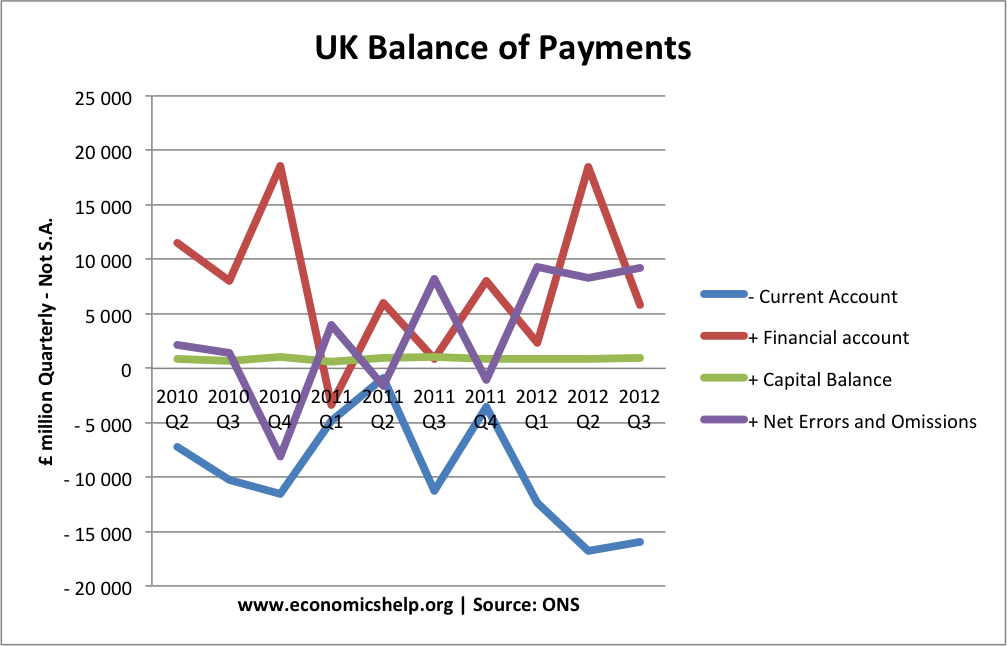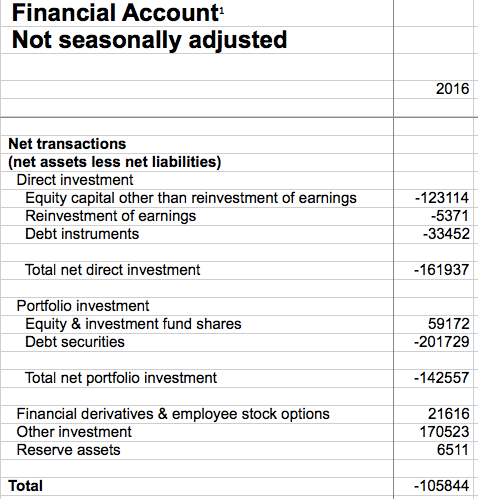The capital account measures transfer in assets and liabilities. For example, this may involve a Japanese firm building a factory in the UK. This is counted as a credit on the UK Capital Account. The Capital account can also involve the purchase of securities and liabilities, for example, a Japanese Banker buying UK Government securities.
Note in the UK the official name for the capital account is now the financial account.
If a country has a current account deficit then, assuming exchange rates are floating, it will have an equivalent capital account surplus. This is necessary to finance a current account deficit.
Some people worry about a current account deficit. But, if it is financed by a capital account surplus e.g. investment then this can be beneficial.
Components of Financial Account
The UK Balance of Payments at ONS
- Direct investment (building factories)
- Portfolio investment (saving money in pension funds/investment trusts)
- Financial derivatives (net) (CDOs, options e.t.c)
- Other investment (e.g. housing)
- Reserve assets
Components of UK balance of payments 2012

In Q2 2012, the main components of the balance of payments were:
- Current Account: £ -15,962m
- Financial Account: + £ 5,785m
- Capital Account + £1,000 m
- net errors and omissions + £9177 m
- net balance = £0 m
These stats show a large amount to account for net errors and omissions – showing the difficulty of collecting statistics but, roughly a current account deficit is mirrored by a surplus on the financial/capital account.
Related

